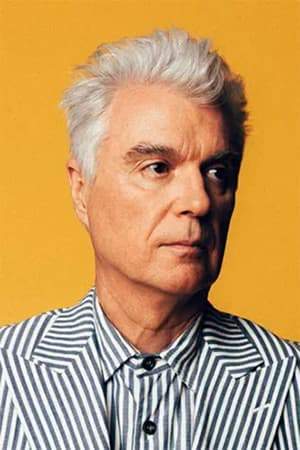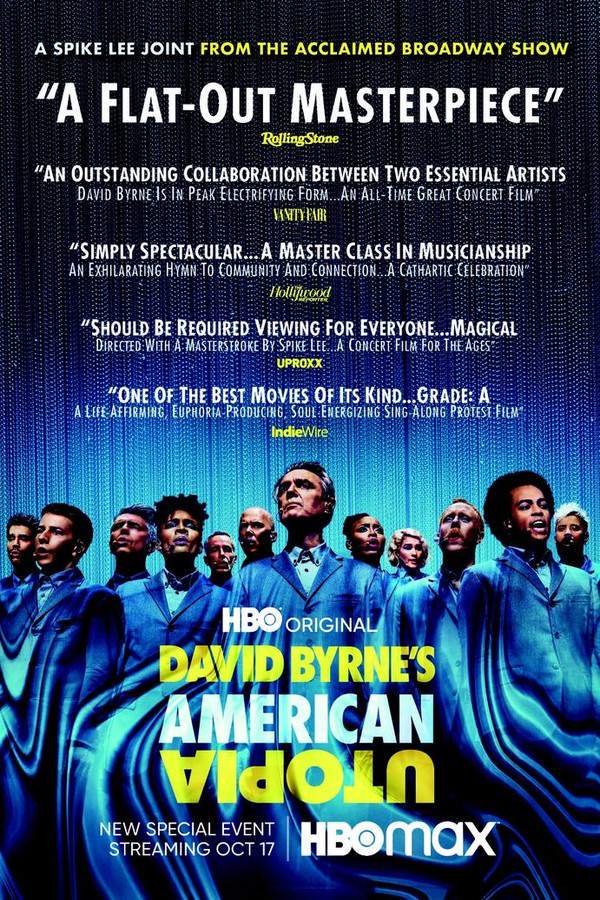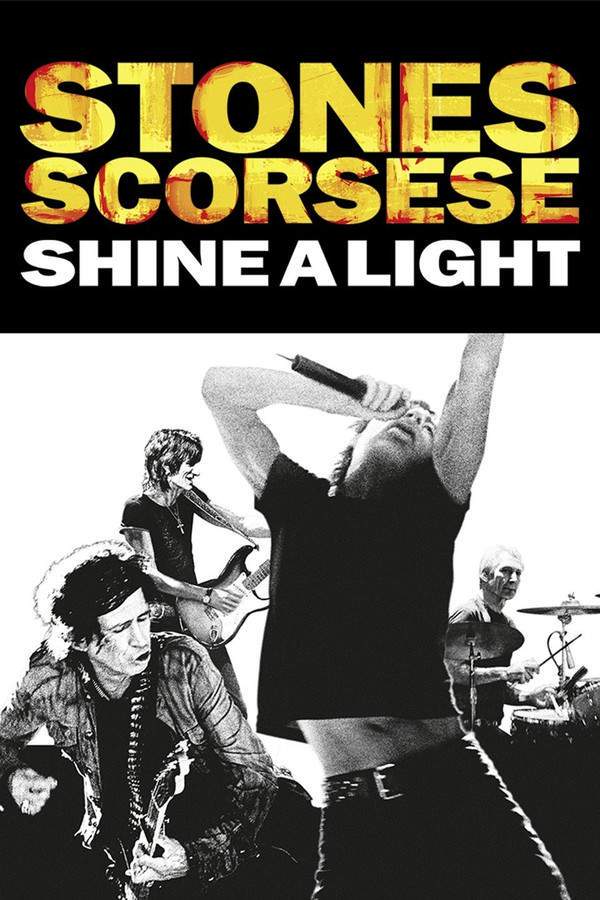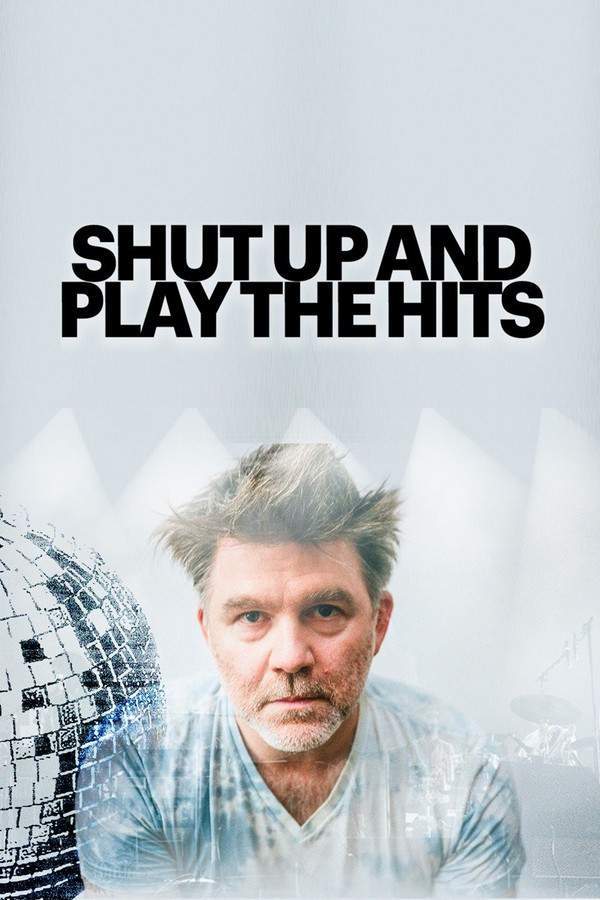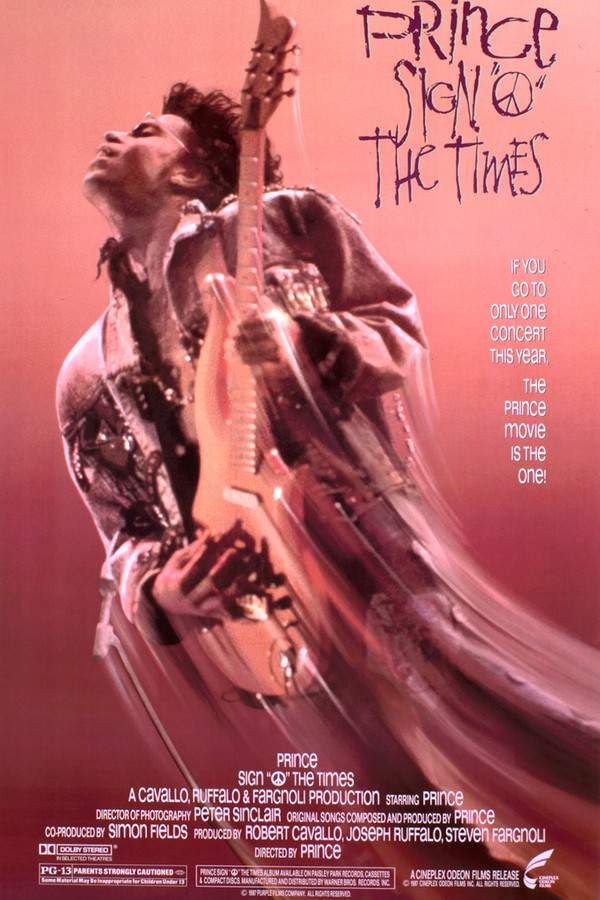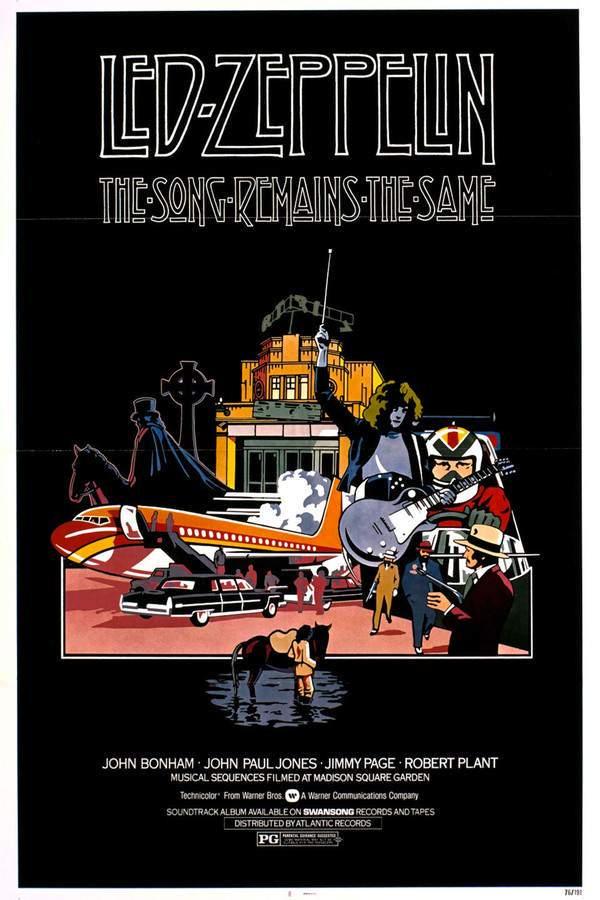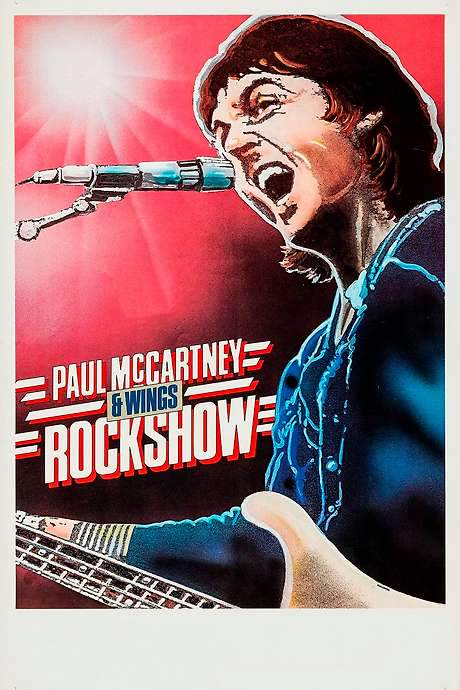Stop Making Sense 1984
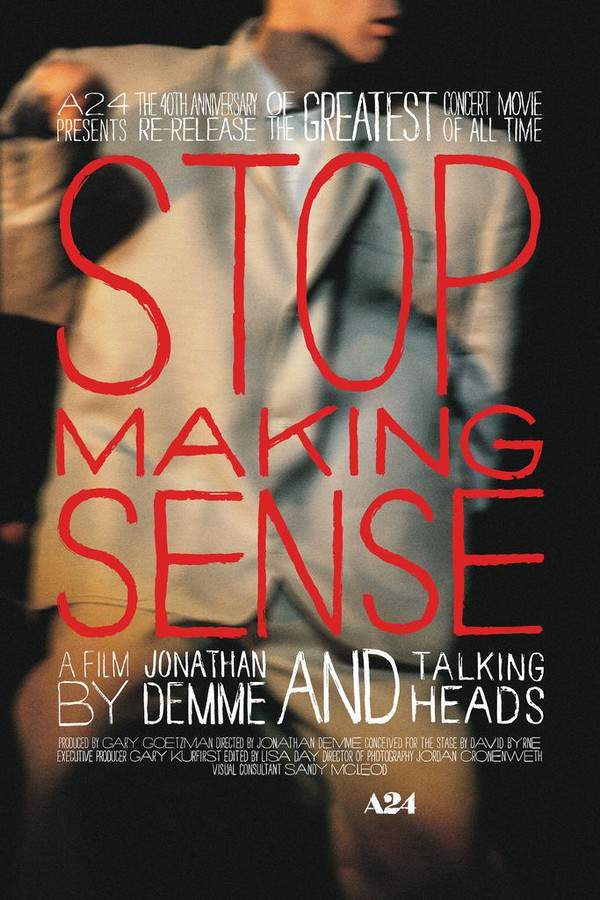
Jonathan Demme’s concert film vividly portrays a Talking Heads performance, beginning with David Byrne’s solo acoustic guitar set. The band gradually joins him, building to a vibrant and energetic spectacle. The film highlights the group’s artistic vision and showcases a memorable performance featuring Byrne’s signature oversized suit, creating a dynamic and electrifying experience for the viewer.
Does Stop Making Sense have end credit scenes?
No!
Stop Making Sense does not have end credit scenes. You can leave when the credits roll.
Meet the Full Cast and Actors of Stop Making Sense
Explore the complete cast of Stop Making Sense, including both lead and supporting actors. Learn who plays each character, discover their past roles and achievements, and find out what makes this ensemble cast stand out in the world of film and television.
External Links and Streaming Options
Discover where to watch Stop Making Sense online, including streaming platforms, rental options, and official sources. Compare reviews, ratings, and in-depth movie information across sites like IMDb, TMDb, Wikipedia or Rotten Tomatoes.
Ratings and Reviews for Stop Making Sense
See how Stop Making Sense is rated across major platforms like IMDb, Metacritic, and TMDb. Compare audience scores and critic reviews to understand where Stop Making Sense stands among top-rated movies in its genre.

94
Metascore
8.9
User Score


%
TOMATOMETER

0%
User Score

8.7 /10
IMDb Rating

83
%
User Score
Take the Ultimate Stop Making Sense Movie Quiz
Challenge your knowledge of Stop Making Sense with this fun and interactive movie quiz. Test yourself on key plot points, iconic characters, hidden details, and memorable moments to see how well you really know the film.
Stop Making Sense Quiz: Test your knowledge about the iconic 1984 concert film 'Stop Making Sense' featuring Talking Heads.
Who is the lead singer and performer at the beginning of the concert?
David Byrne
Brian Eno
Chris Frantz
Tina Weymouth
Show hint
Full Plot Summary and Ending Explained for Stop Making Sense
Read the complete plot summary of Stop Making Sense, including all major events, twists, and the full ending explained in detail. Explore key characters, themes, hidden meanings, and everything you need to understand the story from beginning to end.
Stop Making Sense begins with the lead singer David Byrne stepping onto an empty stage, armed solely with an acoustic guitar and a portable cassette tape player. He introduces his first song, “Psycho Killer,” declaring, > “I want to play a tape.” As the performance unfolds, Byrne is gradually joined by his bandmates and several special guests. The talented Tina Weymouth makes her entrance for the song Heaven, followed closely by Chris Frantz who joins in for “Thank You for Sending Me an Angel,” and Jerry Harrison for “Found a Job.”
As the early songs play, multiple instruments and equipment are brought onto the bare stage, culminating in a powerful rendition of the band’s iconic hit, “Burnin’ Down the House.” The film offers an insightful glimpse into the psyche of David Byrne, as the progression of the songs and the accompanying stage effects reflect his artistic vision. In a unique self-interview segment within the film, he eloquently discusses the physicality of music, emphasizing that while it may not always make sense to the mind, it can resonate deeply with the body.
Director Jon Demme employs wide-angle shots that effectively immerse the viewer in the experience of the live audience, enabling them to take in the entire stage and all its performers simultaneously. Unlike conventional concert films that often rely on quick cuts and fast-paced editing typical of MTV, much of Stop Making Sense showcases extended shots. This allows the audience to truly appreciate the performances and the interactions on stage. Furthermore, the minimal crowd shots—seen only at the film’s conclusion—invite viewers to form their own opinions about the exhilarating experience.
This film serves as an essential exploration of one of the foremost bands in the New Wave movement of the late 1970s and 1980s, making it a must-watch for any devoted fan of Talking Heads.
Uncover the Details: Timeline, Characters, Themes, and Beyond!

Coming soon on iOS and Android
The Plot Explained Mobile App
From blockbusters to hidden gems — dive into movie stories anytime, anywhere. Save your favorites, discover plots faster, and never miss a twist again.
Sign up to be the first to know when we launch. Your email stays private — always.
Watch Trailers, Clips & Behind-the-Scenes for Stop Making Sense
Watch official trailers, exclusive clips, cast interviews, and behind-the-scenes footage from Stop Making Sense. Dive deeper into the making of the film, its standout moments, and key production insights.
Stop Making Sense Themes and Keywords
Discover the central themes, ideas, and keywords that define the movie’s story, tone, and message. Analyze the film’s deeper meanings, genre influences, and recurring concepts.
Stop Making Sense Other Names and Titles
Explore the various alternative titles, translations, and other names used for Stop Making Sense across different regions and languages. Understand how the film is marketed and recognized worldwide.
Similar Movies To Stop Making Sense You Should Know About
Browse a curated list of movies similar in genre, tone, characters, or story structure. Discover new titles like the one you're watching, perfect for fans of related plots, vibes, or cinematic styles.
Quick Links: Summary, Cast, Ratings, More

What's After the Movie?
Not sure whether to stay after the credits? Find out!
Explore Our Movie Platform
New Movie Releases (2026)
Famous Movie Actors
Top Film Production Studios
Movie Plot Summaries & Endings
Major Movie Awards & Winners
Best Concert Films & Music Documentaries
Movie Collections and Curated Lists
© 2026 What's After the Movie. All rights reserved.




